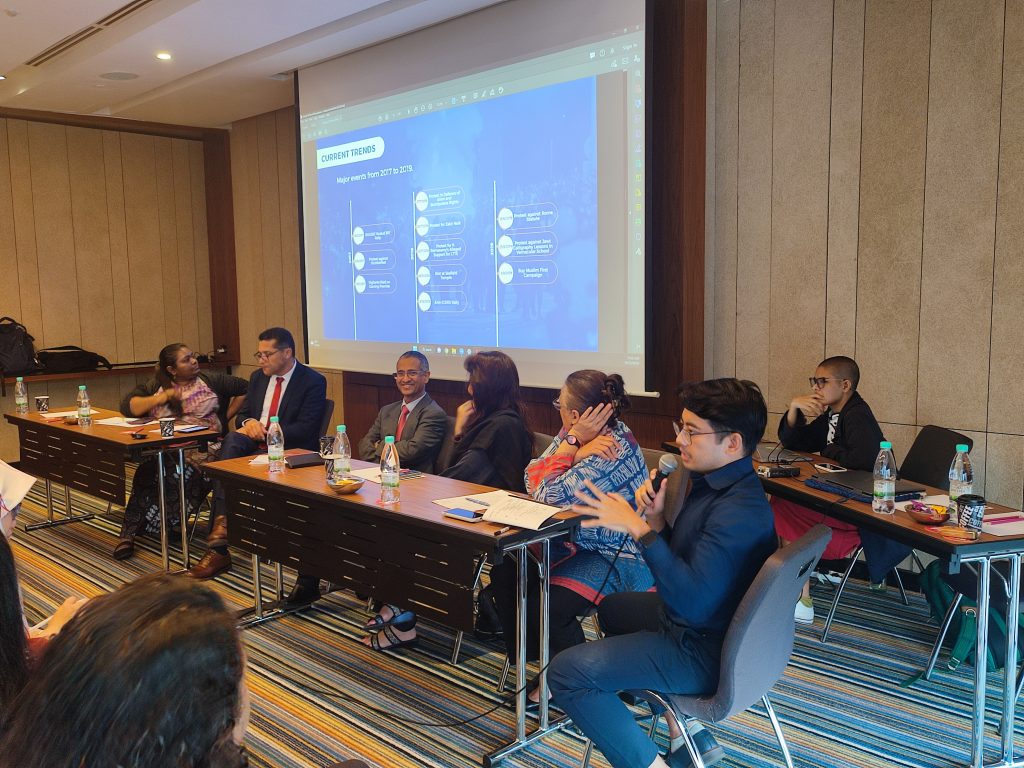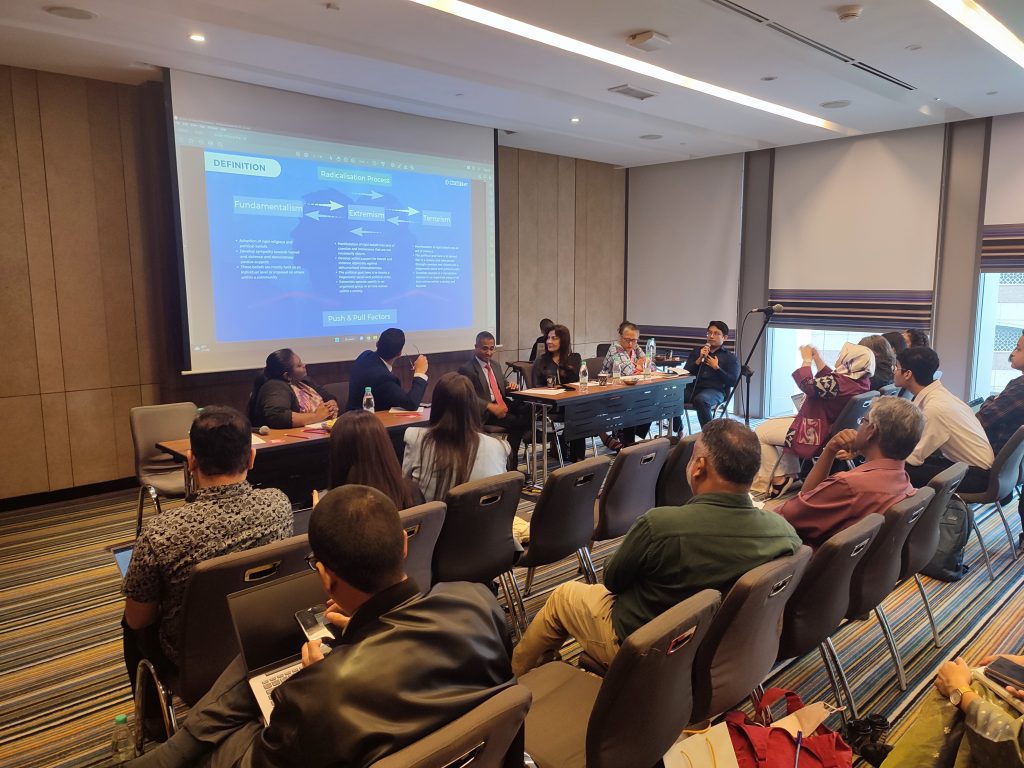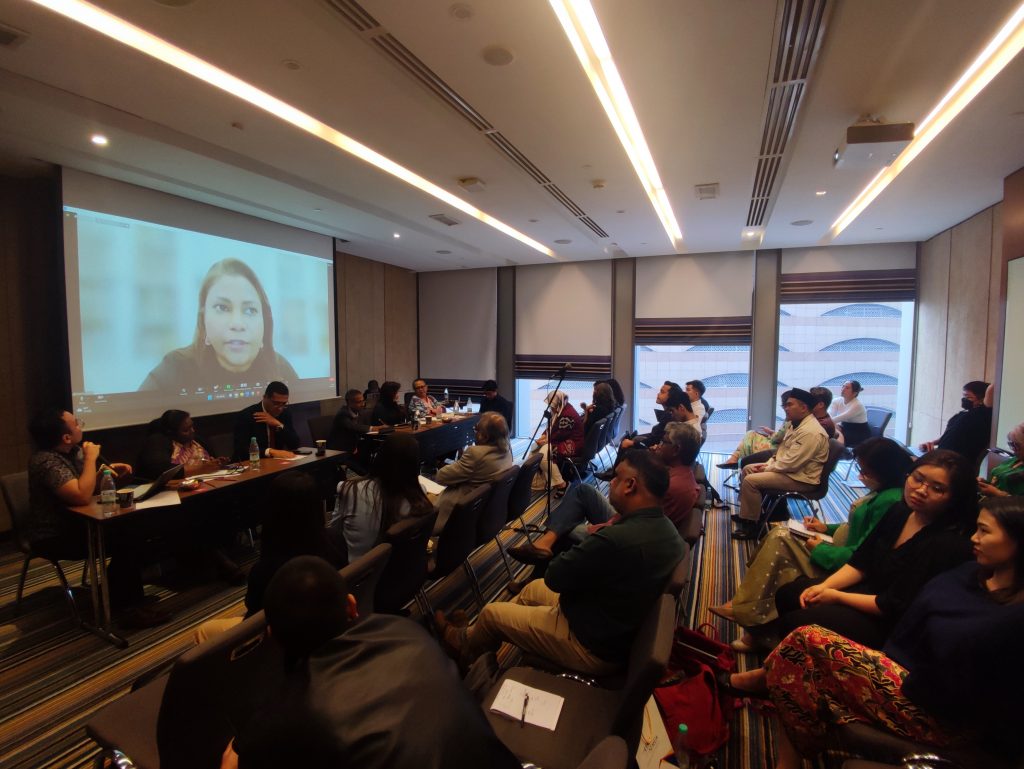Kuala Lumpur, 19th to 21st December 2022 – A three-day visit of expert delegates on FoRB was held from 19th to 21st December 2022 to share contextual developments, experiences and best practices with Malaysian civil society organisations (CSOs) on the topics of FoRB and countering hate speech. The visit was also set to discuss the implementation of the United Nations Framework (UN Resolution 16/18 and Rabat Plan of Action) as a complementary standard for protection of FoRB in Malaysia. The expert delegates were judicial officials from Bangladesh and Tunisia, and the former United Nations Special Rapporteur on FoRB, Prof. Ahmed Shaheed. Komuniti Muslim Universal (KMU Malaysia) took part in this high-level discussion.
The first day started with a roundtable discussion with organisations and communities affected by the legal, political and cultural restrictions. The discussion was participated by representatives from religious and sexual minorities, and CSOs that work on FoRB issues.



KMU Malaysia, based on its research arm, Initiative to Promote Tolerance and Prevent Violence (INITIATE.MY),highlighted that the hegemony of Malays and Sunni-Islam has impacted religious freedom and tolerance in Malaysia. First, legal restrictions such as state fatwas that ban ‘pluralism’ and ‘liberalism’, intra-faith minorities and the usage of ‘Allah’ by non-Muslims.
Second, Islamist and far-right extremism. In the recent 15th general election (GE) , there was an influx of TikTok videos that promote anti-minority narratives and call for violence in the name of race and religion.
Therefore, KMU Malaysia suggested that the CSOs should take the opportunity to work with the Unity Government to address state discrimination and social intolerance.
A closed-door forum was held on the final day of the visit. The experts suggested the inclusion of FoRB indicators in Sustainable Development Goals (SDG) and creating new democratic spaces of faith for rights. It was to discuss the practical aspects in the protection of FoRB with a wider audience. Former MP, Kasthuri Patto explained that Parliament should be leveraged as a platform to debate and effect reforms. Furthermore, Sisters in Islam (SIS) recommended the use of media to spread counter narratives especially on progressive values in religion. From the lessons learnt after GE-14, KMU Malaysia recommended that political risk assessment should be undertaken before any introduction of policy reforms to defend the reforms and manage a backlash from the extremist groups.
In the Q&A session, the participants also shared other challenges they encountered in FoRB advocacy such as the shrinking civic space for inter-faith dialogue but optimistic to see more positive changes after GE-15.
